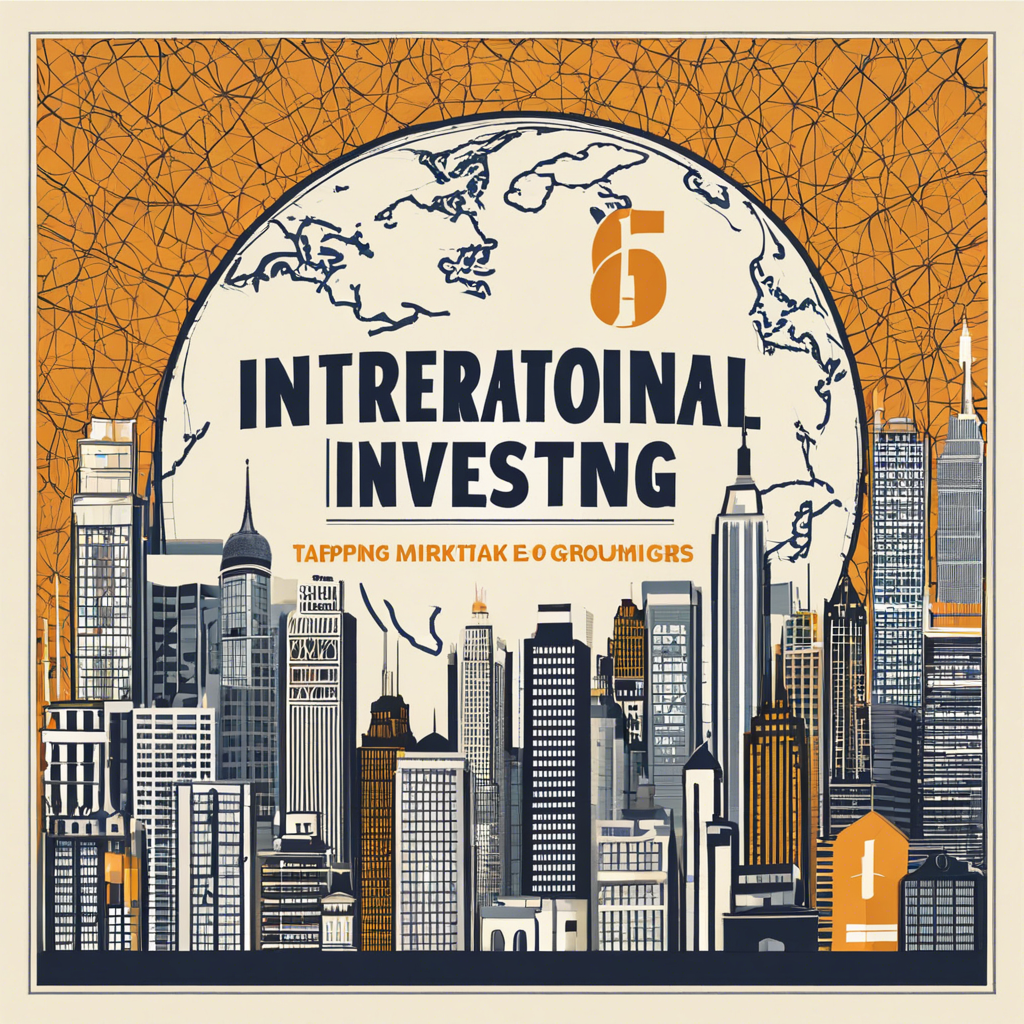International investing has long been an intriguing prospect for investors seeking diversification and growth. With the world becoming increasingly interconnected, exploring opportunities beyond domestic borders is a natural progression for investors. One of the main attractions of international investing, particularly in emerging markets, is the potential for substantial growth. These economies are often in a phase of rapid development, characterized by rising incomes, growing middle classes, and vibrant consumer markets. This creates a fertile ground for businesses to expand and innovate, offering investors the chance to capitalize on this economic ascent.
Take, for example, the burgeoning e-commerce sector in Southeast Asia. Countries like Indonesia, Thailand, and Vietnam are witnessing a digital revolution, with rising internet and smartphone penetration unleashing the potential of online retail. This has given rise to thriving local startups and attracted the attention of global e-commerce giants, creating a vibrant landscape of investment opportunities. Similarly, the fintech industry in Latin America is experiencing explosive growth, driven by the region’s large unbanked population and increasing demand for digital financial services.
Another advantage of investing in emerging markets is the diversification benefit. These markets often have lower correlations with developed markets, providing a hedge against country-specific or regional downturns. For instance, the performance of stock markets in emerging economies like India or Brazil might not always mirror that of Wall Street or European exchanges, offering a certain level of portfolio insulation. By allocating a portion of their assets to international markets, investors can smooth out the overall volatility of their portfolios.
However, navigating the complexities of international investing requires careful consideration and research. Political and economic stability, currency fluctuations, regulatory environments, and market liquidity are among the crucial factors that can influence investment outcomes. Understanding the unique dynamics of each market and conducting thorough due diligence on investment vehicles, such as exchange-traded funds (ETFs) or mutual funds, is essential.
It is also important to remember that each country has its own set of cultural nuances and business practices that can impact the investment landscape. Therefore, investors need to adopt a long-term perspective, recognizing that short-term volatility is inherent in emerging markets but that long-term growth potential remains attractive. Collaborating with knowledgeable partners who have expertise in these markets can also help investors mitigate risks and make more informed decisions.
For those willing to embrace the challenges and rewards of international investing, emerging markets offer a world of opportunities. By expanding their investment horizons, investors can tap into the vibrant growth stories unfolding across the globe, diversifying their portfolios and potentially reaping substantial returns over time. With the right approach and a long-term commitment, international investing can be a rewarding strategy for those seeking to capitalize on the dynamic potential of emerging markets.
As investors, we often hear about the benefits of diversifying our portfolios, and one compelling way to do so is by investing internationally. By allocating a portion of your investment portfolio to international markets, you can access a broader range of companies, industries, and growth opportunities that may not be available solely within your domestic market. International investing opens doors to a whole new world of possibilities, allowing you to participate in the growth stories of diverse countries and regions.
When it comes to international investing, one of the most appealing destinations is the rapidly growing emerging markets. These are economies that are in the midst of transformation, experiencing rapid industrialization, rising standards of living, and a burgeoning middle class. This creates a fertile environment for businesses to thrive, innovate, and cater to the changing demands of consumers. Investing in emerging markets gives you the chance to tap into this dynamic growth potential and diversify your portfolio across different countries, regions, and sectors.
However, it’s important to remember that international investing, especially in emerging markets, comes with its own set of challenges and risks. Political instability, economic fluctuations, currency movements, and varying regulatory environments can all impact your investments. Therefore, it’s crucial to conduct thorough research, understand the unique dynamics of each market, and seek expert advice when navigating these complexities. By adopting a long-term perspective and partnering with knowledgeable professionals, you can enhance your ability to identify and seize the most promising opportunities while effectively managing risks.
